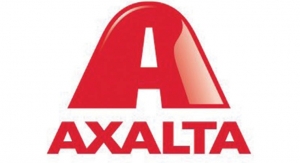But to continue the growth of our industry, companies like PPG need support from our lawmakers. In many ways, U.S. policy is hurting the growth of manufacturing overall.
We see examples every day of laws that prevent companies from creating jobs in the U.S. and force us to focus on areas other than growth.
It is important that lawmakers understand our business challenges and are held accountable to create change that enables growth.
One area of importance is intellectual property protection.
Modern manufacturing is sophisticated, clean and, above all, technology driven. The innovation, and life-changing technologies coming from manufacturers across the U.S., plays a central role in creating jobs and maintaining our competitive advantage in a global marketplace.
It is the adhesive that bonds together products, processes, tools, equipment, employees and customers.
The intellectual property rights behind those technologies are the lifeblood of the manufacturing economy, and the protection of those rights assures manufacturers that their inventions will be secure as they create jobs and build industries around them.
It is important that policies are conducive to the creation and application of technology and vigorously protect intellectual property.
Without strong protection, the incentives for future innovation-directed research and development will diminish.
Research and development is another vital area for our businesses. R&D spending among chemical companies is expected to reach $69.8 billion by 2019.
The research and development tax credit expired December 31, 2009, for the 14th time since it was created in 1981.
Nearly 18,000 companies of all sizes use the credit, and some 70 percent of credit dollars are used for salaries of workers engaged in R&D, encouraging the creation of more high-paying U.S. jobs.
We must address our national tax system to make it more competitive, encourage innovation and spur investment, job creation and economic growth.
In addition to a lower corporate tax rate and a modern international tax system, a strong, permanent and competitive R&D incentive is key to help manufacturers such as PPG succeed. A strengthened and permanent R&D incentive would assure U.S. companies that the credit will be available during the life of R&D projects.
We also need better trade policies. For the last two years, Congress has failed to act on Miscellaneous Tariff Bill legislation, and as a result, manufacturers have been paying substantially higher taxes on essential manufacturing inputs since Jan. 1, 2013.
These higher costs are hurting manufacturers’ competitiveness in the global economy and threatening job creation in the United States. Congress must act quickly to prevent further cost increases and job losses.
In addition, it is important for Congress to take action on a long-term reauthorization of the U.S. Export-Import Bank.
Failure to secure a long-term reauthorization of Ex-Im would place U.S. manufacturers at a significant disadvantage in the face of other governments’ far more aggressive export credit programs, which have provided their own exporters with significant financing support in recent years.
It is important for Congress to promote key trade policies.
It doesn’t matter what we make if we can’t sell it domestically and internationally.
These are important issues that impact our ability to be successful.
We hope lawmakers will hear the voice of manufacturers and give industry the support it needs to grow.
Promoting growth
PPG and the chemical industry need help that lawmakers can provide
October 6, 2015 12:00 AMShare with others:
The chemical industry is an important contributor to Pennsylvania’s economy. In fact, the industry accounts for more than 41,300 jobs that deliver meaningful wages and more than $1 billion in local, state and federal taxes. We are the fourth largest manufacturing industry in the commonwealth. In fact, the Pittsburgh region alone accounts for an estimated 250 chemical firms and 5,000 positions in the industry.
But to continue the growth of our industry, companies like PPG need support from our lawmakers. In many ways, U.S. policy is hurting the growth of manufacturing overall.
We see examples every day of laws that prevent companies from creating jobs in the U.S. and force us to focus on areas other than growth.
It is important that lawmakers understand our business challenges and are held accountable to create change that enables growth.
One area of importance is intellectual property protection.
Modern manufacturing is sophisticated, clean and, above all, technology driven. The innovation, and life-changing technologies coming from manufacturers across the U.S., plays a central role in creating jobs and maintaining our competitive advantage in a global marketplace.
It is the adhesive that bonds together products, processes, tools, equipment, employees and customers.
The intellectual property rights behind those technologies are the lifeblood of the manufacturing economy, and the protection of those rights assures manufacturers that their inventions will be secure as they create jobs and build industries around them.
It is important that policies are conducive to the creation and application of technology and vigorously protect intellectual property.
Without strong protection, the incentives for future innovation-directed research and development will diminish.
Research and development is another vital area for our businesses. R&D spending among chemical companies is expected to reach $69.8 billion by 2019.
The research and development tax credit expired December 31, 2009, for the 14th time since it was created in 1981.
Nearly 18,000 companies of all sizes use the credit, and some 70 percent of credit dollars are used for salaries of workers engaged in R&D, encouraging the creation of more high-paying U.S. jobs.
We must address our national tax system to make it more competitive, encourage innovation and spur investment, job creation and economic growth.
In addition to a lower corporate tax rate and a modern international tax system, a strong, permanent and competitive R&D incentive is key to help manufacturers such as PPG succeed. A strengthened and permanent R&D incentive would assure U.S. companies that the credit will be available during the life of R&D projects.
We also need better trade policies. For the last two years, Congress has failed to act on Miscellaneous Tariff Bill legislation, and as a result, manufacturers have been paying substantially higher taxes on essential manufacturing inputs since Jan. 1, 2013.
These higher costs are hurting manufacturers’ competitiveness in the global economy and threatening job creation in the United States. Congress must act quickly to prevent further cost increases and job losses.
In addition, it is important for Congress to take action on a long-term reauthorization of the U.S. Export-Import Bank.
Failure to secure a long-term reauthorization of Ex-Im would place U.S. manufacturers at a significant disadvantage in the face of other governments’ far more aggressive export credit programs, which have provided their own exporters with significant financing support in recent years.
It is important for Congress to promote key trade policies.
It doesn’t matter what we make if we can’t sell it domestically and internationally.
These are important issues that impact our ability to be successful.
We hope lawmakers will hear the voice of manufacturers and give industry the support it needs to grow.
Michael McGarry is president and CEO of PPG Industries. This op-ed piece was originally printed October 6, 2015 in the Pittsburgh Post-Gazette.









